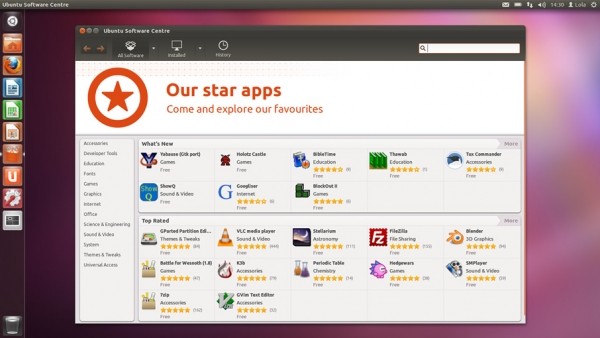After months of anticipation, the latest release of Ubuntu Linux (11.10) hit the download servers yesterday roughly six months since the release of its previous version, 11.04. The free operating system from Canonical is now available for download as 32-bit, 64-bit and server editions, and is available in 38 different languages.
"11.10 continues Ubuntu's proud tradition of integrating the latest and greatest open source technologies into a high-quality, easy-to-use Linux distribution," the company said in an announcement regarding 11.10's release yesterday.
The new release brings several new features, including a new Alt-+Tab switcher and the renaming of "Places" to "lenses", which now has multiple features integrated with new advanced filtering options. The dash has new music lenses, which are linked to Banshee, allowing you to search for music online or in your personal collection.
The launchers and panel have been ported to GTK3, and now use a GTK3-based stack, which offers a performance improvement over previous designs. Enhancements have also been made to the UI with application selection and loading performance increased, while the kernel has been upgraded to version 3.0.

Unity now has a 2D option so users won't fallback to the old Gnome interface when their systems are unable to run 3D acceleration. This new release also features the new Gnome 3.2 desktop environment for those that prefer it to Unity – though some aspects of it are still being migrated from Gnome 2.3.
Ubuntu's software center has received a major revamp, which Canonical say provides a much more enjoyable experience for browsing, installing and removing software. The indicators have had a visual refresh, including the session indicator and the new power indicator. Two new fonts as part of the Ubuntu font family are also available in this new release.
OneConf, a feature that enables users to sync installed apps across multiple computers has been built into the OS, and Deja Dup now has the option to back-up to your UbuntuOne Cloud storage account. Thunderbird now replaces Evolution as the default email client, and is integrated into the indicator menu.
A full list of the changes can be found in the release notes, Canonical has also released 11.10 versions of the other popular 'Buntu inspired OS' for those that prefer other desktop environments.
